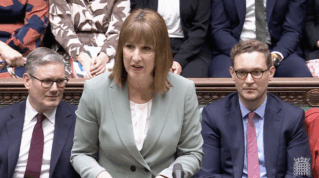As party conference launches reach orbit and yesterday’s boosters head back to Earth, we should all take a satellite look at our education and skills system. Some amazing organisations and dedicated people have ensured FE was on board for lift-off this time, but nothing any politician has said over the past few weeks has abated my 30-year-long frustration.
Today, the happy 50 per cent at school will go on progressing to A Levels and university. And down this easy, well-trodden, well-understood and well-funded path, they will find access to the Lifelong Learning Entitlement (LLE) of £28k to spend on level 4 and above as and when they want.
Meanwhile, the other 50 per cent face 12 years of a school curriculum, teaching and assessment that aren’t right for them and don’t nurture their amazing talents. They get to feel like failures, and worse, the very talents that are taught out of them are often the ones most desired by employers.
Worse still, demotivated and let down by GCSE exams with their baked-in failure rate, they finally escape school for FE to pick them up off the floor – only to be beaten down again with GCSE retakes with a pass rate of 16 per cent.
Worst of all, FE gets the lowest funding in the education sector to support them, regardless of the fact they are some of the learners with the most need.
I say worst of all, but it doesn’t stop there. Level 2 and 3 apprenticeships are underfunded, and participation and opportunities have reduced. If you can work your way to a degree apprenticeship you might have the added benefit of not having to pay £28k for a degree – but the advantaged are slowly elbowing out the disadvantaged here too.
Then there are T Levels. Sunak’s Advanced British Standard reveals them as little else than vocational A Levels. And for those who don’t meet the entry requirements? We are wiping out BTECs and removing pathways, leaving them nowhere to go.
Does this feel like a system designed for all?
At least when the disadvantaged 50 per cent get past 18 adult learning will support them! No chance. Adult funding is in an even worse state and there is no prospect in sight for any form of level 2/3 lifetime entitlement to make up for systemic failures pre-19. That’s only for those ready for a level 4.
In his new book. Equity in Education: Levelling the playing field of learning, Lee Elliot Major argues that class is missing from the debate about diversity. Contending that middle-class advantages are “baked into” the education system, he suggests pupils from low-income families should be referred to as “under-resourced” rather than “disadvantaged”.
So in summary the under-resourced 50 per cent spend 12 years as an ill-fitting peg in a school-shaped hole, after which they progress to organisations that lack the funding to make the most of the two or three years they have to turn their chances around, and if they don’t succeed the funding and opportunities only shrink after that.
Does this feel like an education and skills system designed for all? I see one that forever favours the advantaged and leaves the under-resourced, well, under-resourced.
Before we tinker with programmes, curriculum and qualifications, we need to step back and start by looking at what an education and skills system should be providing all our young people and adults, not just those who have been favoured by policies that supposedly favour the “working-class aspiration to go to university”.
This isn’t a time to review A Levels to make the 16-18 phase even better for them. It’s a time to resource the under-resourced first.
Some fine words have been spoken at the party conferences. But they have for the past few decades. Whatever party is in power always gravitates towards A Levels, higher skills, universities and schools. Talk of technical excellence colleges and Advanced British Standards already show a drift in that direction.
Maybe, for once, the parties should start at the bottom and work up, rather than at the top and never reach those that need the support the most. That’s what we need if our skills system is going to be stellar, rather than crash back to Earth with a bang.

















Of course disadvantage is baked in.
The 1% use the 24% to keep the 75% in their place.
Student loans & the Lifelong Loan Entitlement (none which will be utilised by the 1%) are just mechanisms to help ensure the 99% are kept in their place, by collecting an education tax via the interest on their loans.
There are all sorts of stealth taxes, probably the worst one is the hope tax, or as it’s more commonly known, the national lottery.
The last paragraph in the article reminds me of a old joke about trickle down economics, but 99% of people won’t get it.
Excellent article on the post-16 gulf that is widening between those who achieve good GCSE results and those who don’t.
Instead of endless statements about ‘world -class’ systems and pictures of A-Level students doing star jumps before entering Oxbridge, political parties need to remember that the 50% of the younger population who are being left behind by a lack of provision that meets their needs, will soon be eligible to vote.